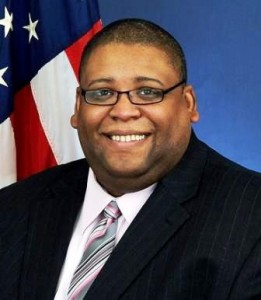David Strickland, the newly appointed administrator of the National Highway Traffic Safety Administration, vigorously defended the agency’s actions during the decade that complaints grew about Toyota unintended acceleration problems. Strickland testified before the Subcommittee On Commerce, Trade, And Consumer Protection of the U.S. House Of Representatives this afternoon.
Strickland, an Obama Administration political appointee who took office this past January, said “no mistakes” were made by the safety agency under either him or prior administrators, an assertion that was met with open skepticism by some of the panelists.
NHTSA is charged with failing to do its job as the nation’s safety agency in the ongoing Toyota unintended acceleration and stuck accelerator pedal matters. More than 60 deaths are now alleged to have occurred because of these safety related defects. And an open issue remains about whether Toyota engine control software could also be causing some of the ongoing incidents.
Moreover, it took a visit to Japan by the U.S. Secretary of Transportation and the former acting administrator of NHTSA to force Japanese executives to initiate a recall. It emerged in previous hearings that Toyota’s American executives are mere figureheads, with no power to order a safety recall.
It also has become clear that Japanese executives only share limited amounts of engineering information with its American subsidiary. Some news organizations have gone so far as to dub Toyota’s management practices a new form of “colonialism.” NHTSA was charged with being a “lapdog” for the auto industry by some critics.
Strickland admitted under questioning that domestic automakers “tend to respond faster” to safety inquiries than do foreign ones.
Strickland’s appearance in what was now the fourth congressional hearing in the past month about how Toyota and NHTSA handled growing concerns about the safety of the Toyota vehicles opened with a statement by him that posed a series of questions about NHTSA’s ability to function.
“The reality is that while the current authority works and the various constituencies have learned to work with them, they were written in the 1960s and 1970s, when the world and the automobile market were profoundly different,” said Strickland. “The question I pose, and the answers I want to have, is whether NHTSA’s statutory authorities accommodate the modern automobile? The modern competitive marketplace?”
“More importantly, do they allow us to regulate in a way that allows the industry to build and sell safe products that the consumer wants to drive? Do they allow us to promote safety, innovation, and fuel efficiency while still providing effective regulatory and enforcement oversight? And do they allow NHTSA to move at pace with the industry?” Strickland said.
“I’ve asked our legal and program staff to take a look at our existing authorities; to answer these questions; and to make their best recommendations.
Sadly, while the rhetoric was finely honed in the best Obama Administration tradition, Strickland provided no answers to these when pressed by the committee.
Strickland did say that NHTSA would be conducting a comprehensive review of electronic throttle technologies across the industry. NHTSA will also look at brake over-ride systems where the engine control computer ignores a throttle input if the brake is also applied.
Strickland said NHTSA plans to evaluate the benefits of mandatory event data recorders in vehicles. The agency also wants to take a “close look” at push-button start and stop technologies.

